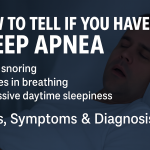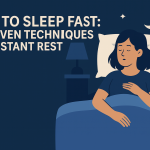Understanding Nighttime Drooling: An Overview
Waking up to find your pillow damp with saliva can be embarrassing and uncomfortable. However, drooling while sleeping is more common than you might think. It happens when excess saliva escapes from the mouth, typically during deep sleep. While occasional drooling is harmless, chronic or excessive drooling may indicate underlying issues that deserve attention.
This comprehensive guide explores the top 7 causes of drooling at night and provides effective solutions to help you minimize or stop the problem. Whether you are curious or concerned, understanding the reasons behind nighttime drooling can empower you to enjoy better, more restful sleep.
What Causes Drooling While Sleeping?
There are several reasons why you might drool when you sleep. Some are benign, while others may require medical evaluation. Let’s dive into the most common causes:
1. Sleep Position
Your sleeping posture plays a significant role in whether you drool at night. People who sleep on their side or stomach are more likely to experience drooling because gravity allows saliva to escape more easily from the mouth.
If you sleep with your mouth open, saliva can pool and leak out onto your pillow. This is especially common if you are in a deep sleep and your facial muscles are fully relaxed.
2. Mouth Breathing
Mouth breathing occurs when you sleep with your mouth open, often due to nasal congestion, allergies, or anatomical issues. This can dry out your mouth but also lead to drooling, since you’re not swallowing saliva as frequently during sleep.
Chronic mouth breathing may be a sign of a deviated septum, enlarged tonsils, or sinus infections—all of which should be evaluated by a healthcare professional if they persist.
3. Excess Saliva Production (Hypersalivation)
The body normally produces about 0.5 to 1.5 liters of saliva daily. However, certain medical conditions can lead to hypersalivation, where the salivary glands become overactive:
- Acid reflux or GERD
- Pregnancy (due to hormonal changes)
- Medication side effects (such as antipsychotics or neurologic drugs)
- Oral infections or dental issues
When the body produces more saliva than it can swallow, the excess often escapes during sleep.
4. Sleep Apnea and Other Sleep Disorders
Individuals with obstructive sleep apnea or other sleep disorders may drool more frequently. Sleep apnea causes interrupted breathing during the night, which can prompt mouth breathing and decreased muscle tone around the mouth.
Research suggests that up to 60% of people with untreated sleep apnea experience some degree of nocturnal drooling. If you snore loudly, gasp for air during sleep, or feel excessively tired during the day, it’s wise to consult a sleep specialist.
5. Allergies and Sinus Issues
Allergic reactions, sinus infections, and colds can block nasal passages, prompting you to breathe through your mouth. This leads to increased risk of drooling while you sleep.
Common triggers include dust mites, pet dander, pollen, or even seasonal changes. Managing these issues can significantly reduce drooling incidents.
6. Neurological Conditions
In some cases, chronic drooling may be linked to underlying neurological conditions. Disorders such as Parkinson’s disease, cerebral palsy, and stroke can affect the nerves and muscles that control swallowing and saliva management.
If you or a loved one experiences persistent, severe drooling along with other neurological symptoms, consult a neurologist for further evaluation and support.
7. Side Effects of Medication
Certain medications stimulate the salivary glands or relax the muscles involved in swallowing, leading to increased drooling. Common culprits include:
- Antipsychotic medications
- Some antidepressants
- Drugs used for Alzheimer’s and Parkinson’s diseases
- Pain medications (opioids)
If you suspect your medication is causing excessive saliva production at night, speak with your doctor about possible alternatives or dosage adjustments.
When Is Nighttime Drooling a Cause for Concern?
Most adults experience occasional drooling, especially during deep sleep stages. However, chronic or excessive drooling can sometimes signal a more serious issue, especially if accompanied by:
- Difficulty swallowing or speaking
- Sudden onset drooling
- Other neurological symptoms (weakness, tingling, slurred speech)
- Persistent mouth sores or irritation
If you notice these symptoms, seek medical evaluation promptly. In most cases, identifying and treating the underlying issue can resolve or significantly reduce drooling.
7 Proven Solutions to Prevent Drooling at Night
Fortunately, there are effective solutions that can help you minimize or stop drooling while sleeping. Here are seven proven strategies:
1. Adjust Your Sleeping Position
Switching to your back (supine position) can help keep your mouth closed and allow saliva to drain properly. You can use supportive pillows to prevent rolling onto your side or stomach during the night.
2. Treat Nasal Congestion
Addressing allergies, sinus infections, or nasal blockages helps you breathe through your nose, which in turn reduces mouth breathing and drooling. Consider nasal strips, saline sprays, or consult with an ENT specialist for chronic issues.
3. Manage Allergies and Irritants
Minimize exposure to allergens by regularly changing bedding, using air purifiers, and avoiding outdoor activities during high pollen counts. Over-the-counter antihistamines or prescription medications may also help reduce symptoms.
4. Review Your Medications
If you suspect a medication is increasing your saliva production, consult your doctor. Never adjust dosage or discontinue medication on your own. Your doctor may suggest alternatives or recommend saliva-thinning agents.
5. Practice Oral Exercises and Good Oral Hygiene
Strengthening mouth and jaw muscles can help you maintain better control over swallowing during sleep. Professional speech therapists offer exercises to improve muscle tone and coordination. Keeping your mouth healthy also reduces the risk of oral infections that trigger hypersalivation.
6. Address Sleep Apnea or Other Sleep Disorders
If you have symptoms of sleep apnea, ask your healthcare provider about a sleep study. Continuous positive airway pressure (CPAP) therapy or custom dental devices may help manage sleep apnea and reduce drooling episodes.
7. Use Specialized Devices or Treatments
In severe cases, dentists may fit you with a mandibular device that keeps your mouth closed or promotes better jaw alignment during sleep. In rare cases, medical therapies such as Botox injections or surgery may be considered for chronic drooling related to neurological disorders.
Frequently Asked Questions About Nighttime Drooling
Is drooling at night normal?
Occasional drooling is common and typically not a cause for concern. It often occurs during deep sleep, when your muscles are most relaxed. However, if drooling becomes persistent or increases suddenly, it’s a good idea to evaluate potential triggers or consult a doctor.
Can certain foods make drooling worse?
Yes, foods that stimulate saliva production—such as citrus fruits, spicy dishes, or acidic foods—can make drooling more pronounced, especially if consumed before bed. Try avoiding these foods in the evening if you’re prone to nighttime drooling.
When should I see a doctor about drooling?
Seek medical attention if drooling is accompanied by other concerning symptoms such as trouble swallowing, sudden weakness, or neurological changes. If home remedies do not resolve the issue, a healthcare provider can offer tailored advice and treatment options.
Takeaway: Enjoy Restful Sleep Without the Worry of Drooling
Drooling during sleep is a common yet manageable issue. By understanding the underlying causes and trying proven solutions, you can greatly reduce or eliminate nighttime drooling. If your symptoms persist, don’t hesitate to consult a medical professional for a thorough evaluation. With the right approach, you’ll wake up feeling dry, refreshed, and ready to start your day.


